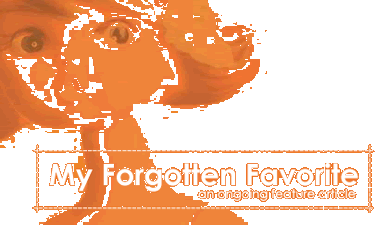|
AUDIO
by Josh Zanger
----------------------------
Rollins Band
Do It
A Texas Hotel release
(1988)
I have plenty of Dusty Favorites. These are the albums or books or videos that I love but which just havenít been in my play rotation as of late. Then there are those picks that I really have forgotten about. As I was recently combing through my compact disc rack, I caught glimpse of a jewel case that I thought had been long since misplaced or sold to a used music outlet. I plucked the dull, scratched relic out of its slot and began to recall the memories that went along with it; how much I was musically impressed at such a young age by hearing the recording. It may sound strange, but Rollins Bandís Do It was my gateway to a whole new region of music.
I started out with buying Weight as a junior higher. "Liar" was a hit on the local major rock station and I thought, Henry Rollins is so angry and
insane... I love it. I backtracked to The End of Silence (their 1992 release, two years prior to
Weight) and found more of the same high-powered alterno-metal that made
Weight a commercial success. Do It Ė along with Rollinsís work in Black Flag Ė was never a commercial success, nor was it ever to be considered alterno-metal. For Rollins Band and for any musician who owes Henry Rollins a sliver of musical debt, Do It should be the gold standard.
Do It is largely a live album. Sometimes listeners shrink away from the Ďliveí pretense and often there is a good reason to stay away. However, this is not a thin, weakly assembled recording.
The first three songs of the album are outtakes from the recording session of another Rollins Band release,
Life Time. Produced by Ian MacKaye, "Do It," "Move Right In," and "Next Time" are exemplary slices of true underground punk rock/hard rock/blues. From the beginning of the first track Ė a five second intro of Rollinsís throat-searing demon yell Ė the table is set for outright balls-out, vein-popping rockĎníroll. Throughout the three studio and twelve live cuts, Rollins plays drill sergeant to Chris Haskett (guitar), Andrew Weiss (bass) and Sim Cain (drums) as the responding militants.
"Move Right In" was a song that I was particularly blown away by back in my music consuming infancy. The track begins like any other, with a repetitive snarling blues guitar riff and solid backing from chugging bass and drums. About halfway through, Weiss briskly walks a bluesy bass line to Cainís cut time tempo to throw everything into a bit of a punk rock blues frenzy. Directly after this segment Weiss throws down one of the funkiest slap bass solos ever recorded and Cain follows suit with a simple yet memorable break beat, featuring a bass drum rhythm that even Bonzo would think was dope.
The rest of the album was recorded live in the fall of 1987, all over Europe (Holland, Belgium, England, and Germany). Extraordinary intensity echoes throughout an hour of instrumentation and hearty yells, but also within the singerís insight between songs. During "Joe Is Everything, Everything Is Joe (Intro)" a foreign MC introduces Rollins and his band with great familiarity and after inquiring as to why Henry shaved his head, Rollins replies, "Itís more symbolic for the pain and suffering that goes on in the world. Each hair that was cut is a
life... a soul... a heart and a mind." The MC quickly chimes in, "OK, letís have some music, man," with a comical apathy.
A few tracks later, as Rollins introduces "Wreck Age," he speaks as one that has suffered, explaining the loss of friends and family that prompted the following lyrics. With a playlist featuring songs such as "Lonely," "Thousand Times Blind," and "Gun in Mouth Blues" the titles and music speak as a consciousness in and of themselves, with the aggressive tension of instrument pounding further leaving nothing to ambiguity.
Although Do It was never met with much critical acclaim or sales success, it is an album that I regard as essential for any punk rock starter. While there isnít an overwhelming emphasis on politics or insubordination (per every other punk rocker), the album is still a social document, and is likewise a breach between the fuzzy classifications of straight rock Ďní roll and punk rock. If none of these things start your engine, hopefully the fact that Henry Rollins is a notable rock figure will make the album a collectable and Recognized Favorite for you as well.
----------------------------
|

![]()